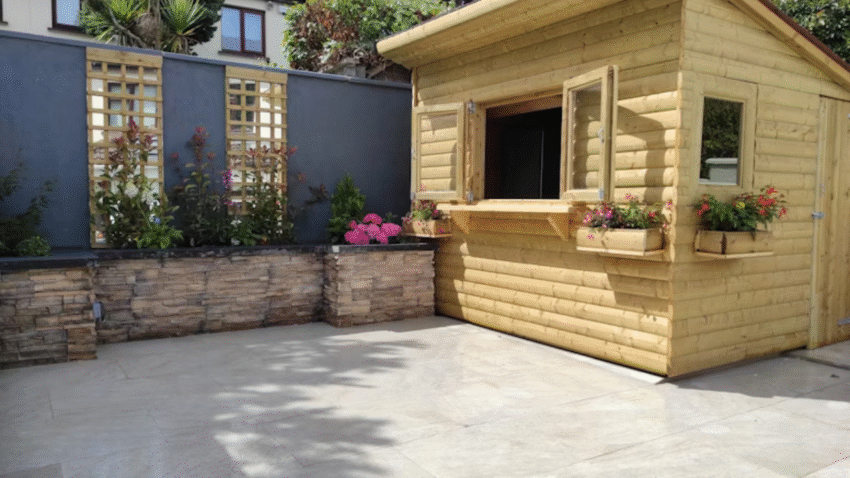Introduction
Composite decking has become a popular choice for homeowners who want the beauty of wood without the constant upkeep. Made from a blend of wood fibers and recycled plastics, composite boards are designed to resist rot, insects, and fading. But “low maintenance” doesn’t mean “no maintenance.” Learning how to maintain composite decking is key to keeping your outdoor space looking new and performing well for decades.
Why Composite Deck Maintenance Matters
Even though composite decking is more durable than natural wood, it still requires care:
- Preserves Appearance: Prevents stains, fading, and buildup of dirt or mildew.
- Extends Lifespan: Keeps boards strong and prevents premature wear.
- Safety: Reduces slippery surfaces caused by mold, algae, or debris.
- Protects Investment: Composite decking is a long-term investment—maintenance ensures you get full value.
Proper upkeep is simple, cost-effective, and usually less labor-intensive than caring for wood.
Step-by-Step Guide to Maintaining Composite Decking
1. Regular Cleaning
Composite boards can accumulate dirt, pollen, food spills, and grime just like any outdoor surface.
- Sweep the deck weekly to remove leaves, dirt, and debris.
- Rinse with a garden hose once or twice a month.
- For deeper cleaning, mix warm water with mild dish soap and scrub with a soft-bristle brush. Rinse thoroughly to remove suds.
2. Seasonal Power Washing (Carefully)
A pressure washer can be used if done correctly.
- Keep pressure under 1,500 PSI.
- Use a fan-tip nozzle at least 12 inches away from the boards.
- Move with the grain to avoid etching or damaging the composite shell.
- Do not use rotary nozzles, which can strip the surface.
3. Remove Stains Promptly
Composite decking resists stains, but oils, grease, and food spills can leave marks if left too long.
- Clean spills immediately with warm soapy water.
- For stubborn grease, use a composite-safe degreaser.
- Avoid harsh solvents or bleach—they may damage the finish.
4. Prevent Mold and Mildew
Although composites resist rot, surface mold can still grow in damp, shady areas.
- Sweep regularly to remove organic debris.
- Use a composite deck cleaner with mold-fighting agents once or twice a year.
- Improve airflow by trimming nearby plants or shrubs to reduce moisture buildup.
5. Protect from Scratches
Composite decking has a durable shell but is not scratch-proof.
- Place protective pads under furniture legs.
- Avoid dragging grills, planters, or heavy objects across the surface.
- Use outdoor rugs made of polypropylene or plastic fibers (not natural jute or rubber, which can trap moisture or stain).
6. Minimize Fading
All outdoor materials fade slightly, but composite resists fading better than wood.
- Choose lighter colors for sun-drenched areas.
- Consider a UV-protectant cleaner for added sun resistance.
- If boards fade unevenly, a light scrub often blends the appearance.
7. Control Expansion and Contraction
Composite boards expand and contract with temperature changes.
- Leave recommended spacing during installation.
- Inspect gaps seasonally to ensure debris isn’t trapped between boards.
- Never caulk expansion joints—it interferes with natural movement.
8. Handle Ice and Snow Properly
Winter care keeps composite decking safe.
- Use a plastic shovel instead of metal to avoid scratches.
- Apply calcium chloride or rock salt for ice (safe for composites).
- Rinse thoroughly in spring to remove residue.
9. Address Mold Between Boards
If you notice green or black buildup in gaps:
- Use a putty knife or deck tool to remove trapped debris.
- Hose down thoroughly.
- Apply a composite-safe deck wash if needed.
10. Perform Annual Deep Cleaning
At least once a year, give your composite deck a full washdown.
- Sweep and rinse.
- Apply composite deck cleaner across the entire surface.
- Scrub lightly with a brush, focusing on high-traffic and shady areas.
- Rinse until water runs clear.
Common Mistakes to Avoid
- Mistake: Using Harsh Chemicals
Bleach and chlorine damage composite surfaces.
Solution: Stick to composite-specific cleaners or mild soap. - Mistake: Ignoring Gaps Between Boards
Trapped debris encourages mold.
Solution: Keep gaps clear with regular cleaning. - Mistake: High-Pressure Washing Too Close
Over 1,500 PSI or close contact scars the surface.
Solution: Keep distance and use a wide fan tip. - Mistake: Covering with Rubber-Backed Rugs
Rubber and natural fiber rugs trap moisture and stain.
Solution: Use plastic-fiber outdoor rugs. - Mistake: Leaving Furniture or Planters in One Spot
Uneven weather exposure causes discoloration.
Solution: Rotate furniture and move planters periodically.
Extra Patio & Deck Tips & Hacks
- Store cushions and décor when not in use to reduce dirt and wear.
- Add drip pans under grills to catch grease and prevent staining.
- Install gutter extensions to prevent water runoff from splashing onto the deck.
- Use composite touch-up kits to repair minor scratches or scuffs.
Want to ensure your deck lasts even longer? See our guide on how to seal a wooden deck for protection (similar principles apply to composite decks with protective coatings).
Conclusion
Knowing how to maintain composite decking keeps your outdoor space safe, stylish, and long-lasting. With regular cleaning, careful handling of spills, and a few preventative measures, composite boards will maintain their beauty for years with minimal effort.
Pro tip: Create a seasonal maintenance routine—spring deep clean, summer spot checks, fall prep, and winter snow care. It only takes a little effort each season to keep your composite deck in peak condition. Bookmark this guide to stay on track year after year.
